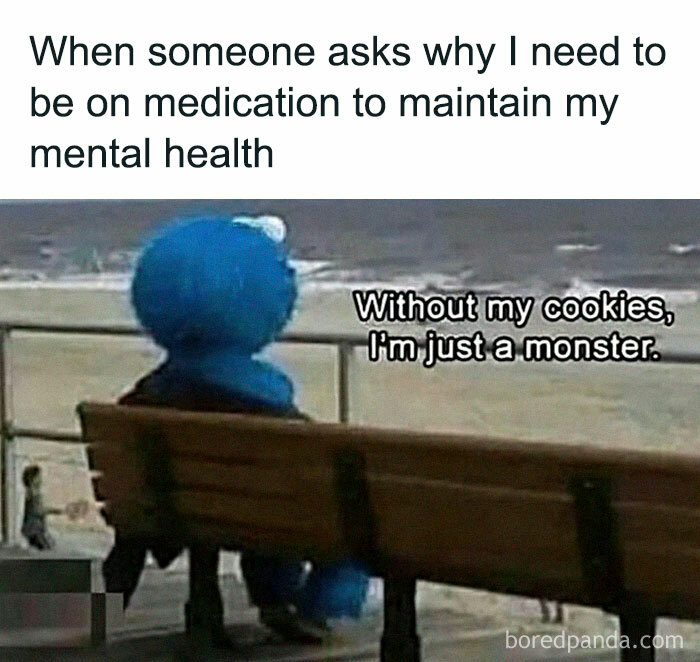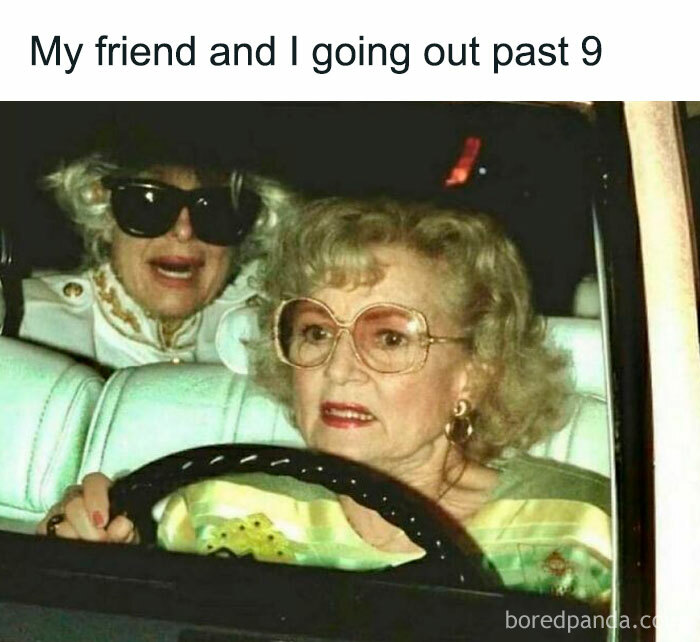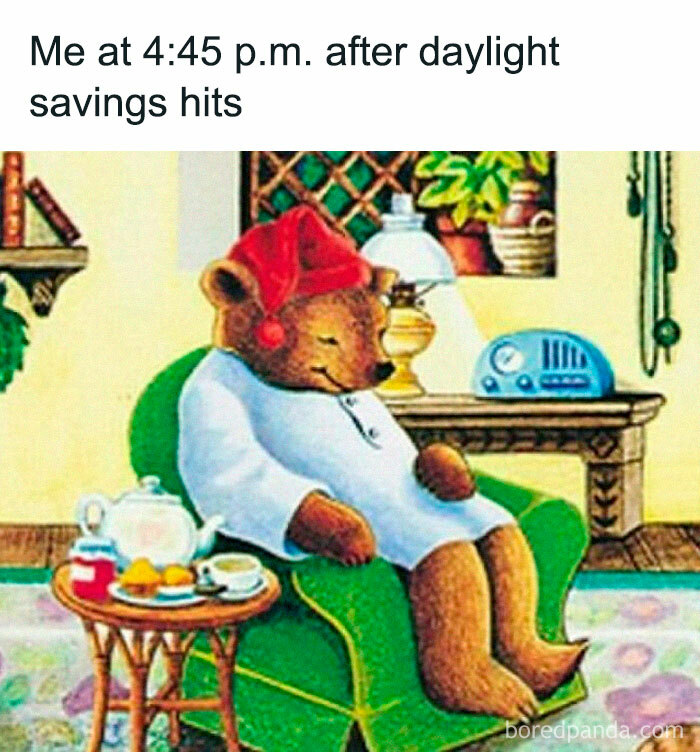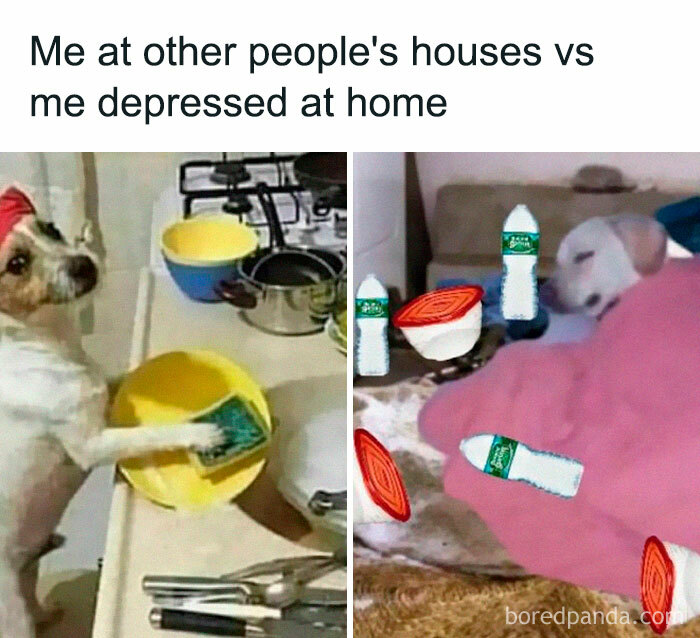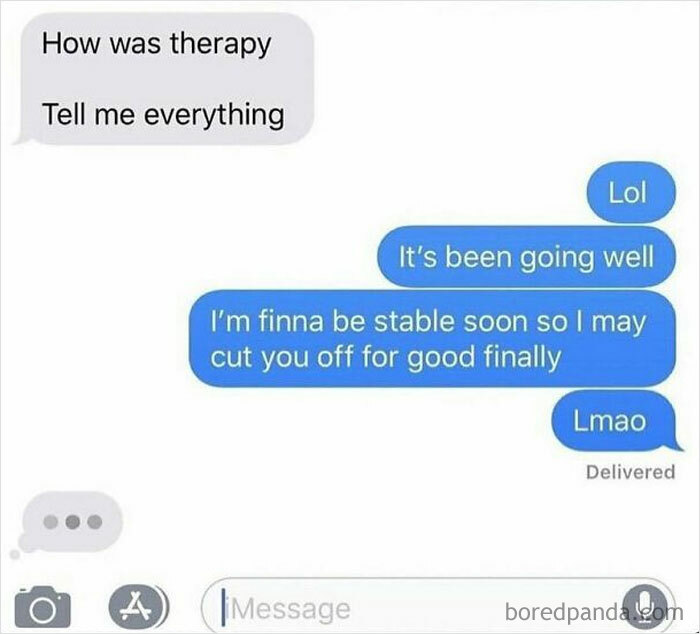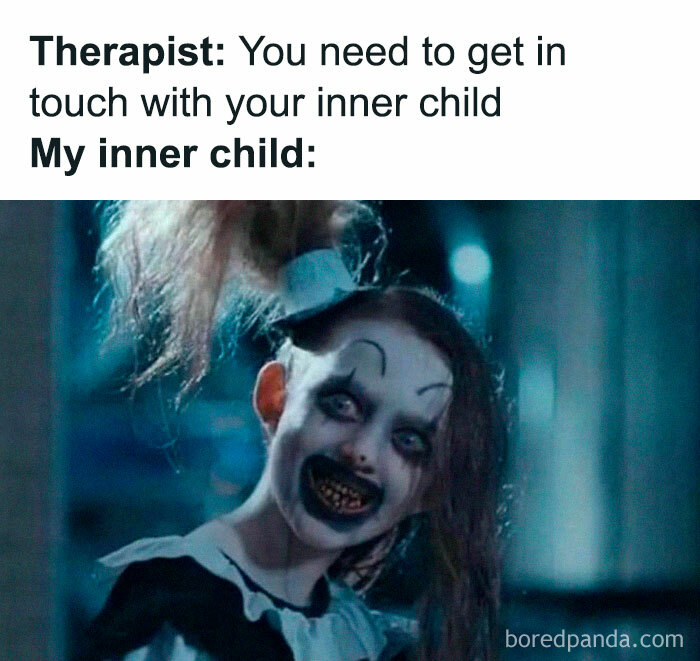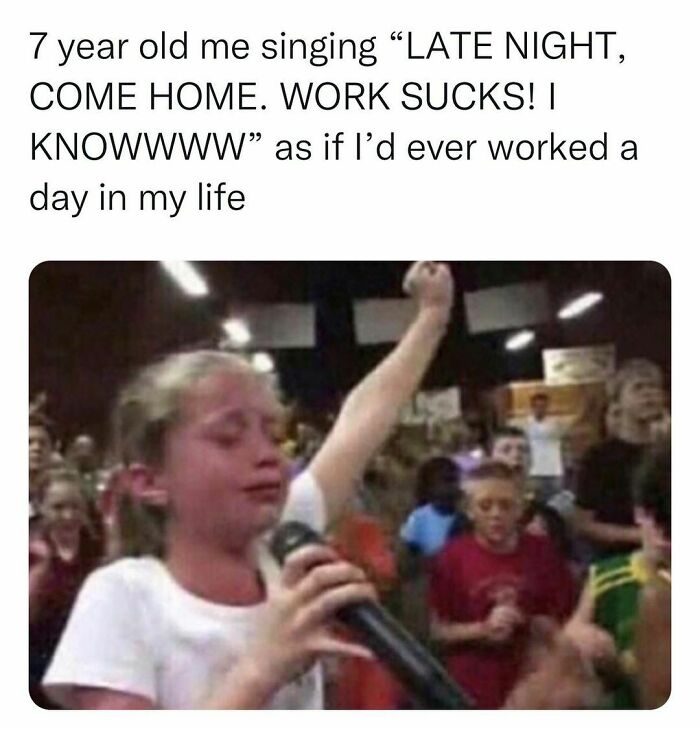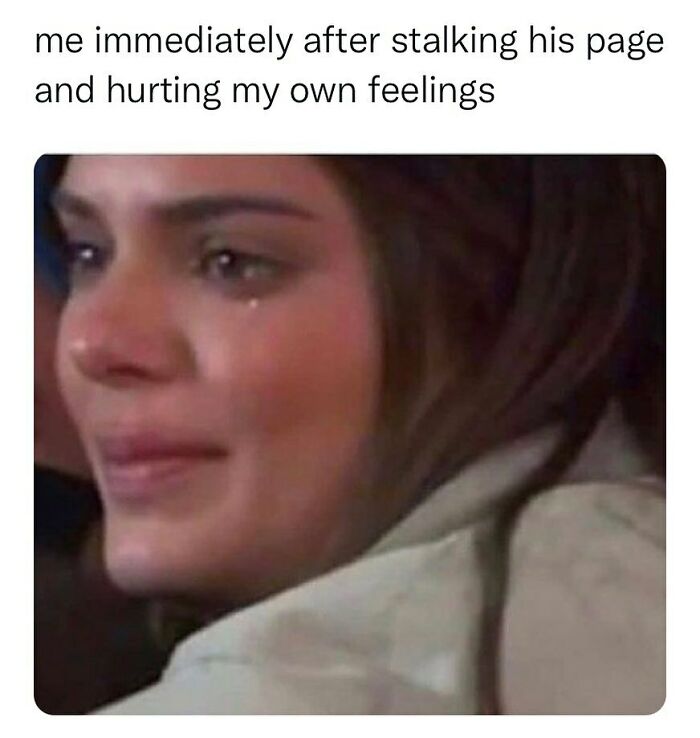It's been two and a half weeks since the days began to get longer here in the northern hemisphere. Are you feeling the effects, pandas? Me, not so much. It's still dark out when I wake up in the morning, and already dark when I finish work. And the vitamin D supplements don't seem to be working.
That's why we need some good ol' memes to brighten up our days. Not anything specific – a little bit of everything will do. That's where the Memes for Days Instagram account, curated by Kait, comes in. They're funny, they're relatable, sometimes deranged, as the creator of the page puts it. So come and have a laugh if this winter blues is getting to you too.
This post may include affiliate links.
"It silences the voices that want to make me do unspeakable things, like telling me that I should work for Amazon"
It's normal to feel a little down after the holidays. No more Christmas presents to look forward to, New Year's Eve celebrations are once again a year away. And the weather isn't helping as well. Blue Monday is approaching, supposedly the saddest day of the year. That's the third Monday of January, and this year it's the 15th.
Why is that day so depressive? It's the combination of long dark nights, bad weather and the lingering aftermath of the holiday season. Regional Director of Psychology Services (Midlands) at Cygnet Health Care Matthew Gill writes that "January Blues manifests itself as feelings of low mood, sadness, lack of motivation, tiredness and low energy."
Can confirm. Walking down Tottenham Court Road, London, trying to explain to my friend that the water, “tasted fuzzy…you know, slightly furry…fuzzy…”
January also means it's the peak time of Seasonal Affective Disorder, a more severe type of depression than the "Winter Blues." People afflicted with SAD might start feeling depressive episodes during the months with less sun. Experts advise not to write off feeling down, less energetic and just generally moody to simple winter blues.
A mental health expert at News In Health Dr. Matthew Rudorfer writes about the differences between simple winter blues and SAD. "Winter blues is a general term, not a medical diagnosis. It's fairly common, and it's more mild than serious. It usually clears up on its own in a fairly short amount of time," Dr. Rudorfer claims.
Seasonal Affective Disorder (SAD), however, is different. It's not just the 'winter blahs’. "It's a well-defined clinical diagnosis that's related to the shortening of daylight hours," according to Rudorfer. "It interferes with daily functioning over a significant period of time."
You do realize that Boys in middle school are almost certainly the dumbest thing on the planet. Following by boys in Jr High, then High school and then ...
Naturally, it's more common in the northern parts of the world. The US is no exception. "In Florida, only about 1% of the population is likely to suffer from SAD. But in the northernmost parts of the US, about 10% of people in Alaska may be affected," Rudorfer told NIH.
She may have been funny her The Office days, but now she's just a hack who literally inserts herself into characters that no one likes in shows that no one likes (e.g. Velma)
Licensed psychologist Jordan Fiorillo Scotti, Ph.D. gave Psychology Today some tips on how to avoid the winter blues. Her first suggestion is to shower and get dressed. However tempting it may be to walk around in the same sweatpants the whole weekend, Scotti writes that scented body soaps and shampoos have an energizing effect. And dressing up in comfortable or attractive clothes might make us feel more productive.
An ex's mum literally said to me, a couple of years after we broke up, ''hes an a**hole*''. Good times.
Organizing your environment is the second tip. When we're in an unkempt space, it makes us feel like we're not in control, Scotti writes. If it's hard to start, try doing just one thing – either load the dishwasher or do the laundry. The psychologist claims that it's "enough to remind us that we can change our circumstances and instill a sense of hope."
This next one is a little harder: staying active. "Regular exercise has been proven to reduce stress, help improve self-esteem levels and relieve depressive tendencies as exercise releases endorphins which gives your body a positive feeling of happiness," psychologist Matthew Gill writes. This exercise doesn't need to be that rigorous – a brisk walk would probably do in most cases.
Walking outside also relates to this next piece of advice for battling winter blues. Psychologists say it's important to get as much sunlight as possible. NIH recommends getting outside, especially early in the day.
In some cases, spending just an hour outside might seriously help with your mood. What's more, sunlight can also help regulate your sleep cycle, so if you're having trouble sleeping – don't skip that walk after lunch.
Socializing is another big part of battling the winter blues. It's important to feel connected and supported by friends, family and colleagues. Scotti recommends offering to help someone else or not being afraid to ask for help.
I can "withstand" that look ALL day and ALL night if all you did was flip the tip screen.
"Bake cookies for a nursing home, donate to the food bank, call a lonely old neighbor, or bring in a neighbor's trash can, or shovel their driveway," Scotti lists some suggestions. You can also ask your friend to bring some soup when you're not feeling like cooking dinner. "People seriously love doing stuff like this, so just ask," Scotti urges.
Umm this is a common thing? How do you explain yourself? Lol "My phone glitches and takes screenshots randomly?"
I have no idea how I did it, but I hadn't heard her song once this season. Great
Once read a post on here from a doctor referring to that machine as the Donut of Truth. Just thought yall should be privy to that much-more-fun new name for an MRI machine
I'm a Woman and if my Woman wore that for me when I walked in the door she would get whatever she damn wanted from me.
This is how my entire friend group talks to each other. ITS AMAZING.
I would have liked to have been in a relationship.
Yeah, I've finally gotten there. My Asian blood is starting to lose it's magic. lul
But it be way cool if you could pull off that coming back to life trick.
If you’re a disabled kid in New Zealand, Satan is who you need to write to. :) https://www.satanslittlehelper.nz/
This card is like a medieval painting warning people not to sin. I guess the message is the same, but who painted it? Looks like the 1910s or -20s. Interesting
Primary school sucked worse for me than my current job, and I say this as someone whose current job has a batshît workload for about half the year.
I mean you're not obliged to date them just because they've been into you for years. Also, you can meet a person you have instant chemistry with. Happened with me multiple times. At least one of those instant sparks led to a long relationship. Currently in another one which also started with an instant spark.
The first step to self improvement is acknowledging that you are the problem. Now that you know try to do better. I believe in you. ( This is towards anyone who is working towards self improvement)

 Dark Mode
Dark Mode 

 No fees, cancel anytime
No fees, cancel anytime 










